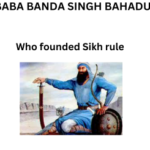IT (Intermediary Guidelines and Digital Media Ethics Code) Rules, 2021: The Kerala High Court restrains Centre

On March 10, The Kerala High Court restrained the Centre from taking coercive action against Live Law Media Private Ltd., which owns a legal news portal, for any non-compliance with Part III of the new IT (Intermediary Guidelines and Digital Media Ethics Code) Rules, 2021.
The court issued notice to the Centre on a petition filed by the firm challenging the rules regulating digital news media, curated content (OTT platforms), and social media intermediaries.
LEARNING FROM HOME/WITHOUT CLASSES/BASICS
These will require Big Tech platforms to set up stronger grievance redressal mechanisms, and appoint executives to coordinate with law enforcement in India.
It also including for the first time, entities which are in the business of either creating or distributing news online under the ambit of an online intermediary; made them more liable for the content being shared on their platform by following due diligence, failing which the “safe harbour provisions” will not be applicable to them. These safe harbour provisions have been defined under Section 79 of the IT Act, and protect social media intermediaries by giving them immunity from legal prosecution for any content posted on their platform.
The second major change brought in with the new rules is making social media intermediaries more liable for “identification of the first originator of the information; will be required to disclose the first originator of the mischievous tweet or message, as the case may be
all the rules have been framed and notified under the existing Information Technology (IT) Act, the administrative powers for regulation of OTT and digital news sharing platforms shall be under the Ministry of Information and Broadcasting (I&B).
- Grievances on social media platforms should be addressed as soon as possible. Under the new policy, social media platforms such as Twitter and Facebook will have to remove flagged content as soon as possible, but no later than 36 hours after a government or legal order.
- Social media platforms will be required to appoint a grievance officer, who shall register complaints within 24 hours. They will work in coordination with the authority to solve the issues.
- Content involving nudity, morphed pictures of women have to be removed within 24 hours.
- Social media platforms will have to disclose the first originator of the message or tweet if the authority of the court order dictates. This refers to where the message first originated and holding the originator accountable for its dissemination.
- The OTT platforms must follow self-classification for categorizing content age-wise.
- OTT platforms and digital news portals should also set up a grievance redressal system.
- Through a three-tier mechanism, OTT platforms and digital new media will have to disclose their details.
- OTT platforms must have a self-regulating body, headed by a retired Supreme Court or High Court judge or very eminent person in the category.
- Social media platforms must have a chief compliance officer residing in India—who will be responsible for ensuring compliance of Acts. They are also required to have a nodal contact person residing in India for coordination with law enforcement agencies.
- All these laws will come into effect within three months.
Over the top (OTT) media service is a streaming media service offered directly to viewers via internet.
In India multiple different articles and sections from different acts that regulate the content available online.
- Article 19(1) of the Indian Constitution, gives everybody the Freedom of Speech but right under Article 19(2) of the Indian Constitution, such freedom can be taken away by imposing reasonable restrictions in case such a content is against the wellbeing of the State, leads to hamper in the public order, international relations or aims towards inciting any crime.
- The Indian Penal Code, serves to punish anybody who has been indulged in the selling or distribution of work of literature which is obscene (Section 293). Has the intention of outraging religious sentiments which is intentional and done maliciously (Section 295 A). Any act of publishing defamatory content (Section 499) and of anyone who insults any woman’s modesty (Section 354).
- The Indecent Representation of Women (Prevention) Act, 1986 acts towards making sure that there is complete prohibition of indecent representation of women in advertisements, books, movies, painting etc.
- The POCSO (Protection of Children from Sexual Offences) Act makes it an offence to sell and distribute child pornography
- Sections 67A, 67B and 67C if the Information Technology Act, 2000 provide for penalty as well imprisonment to be imposed on anybody who has transmitted or published any kind of obscene material, any sexually explicit material including those where children are depicted in sexual acts. The Central Government is also provided with the powers to issue directives to block certain information to be in public access, under Section 69A of this Act.






0 Comments